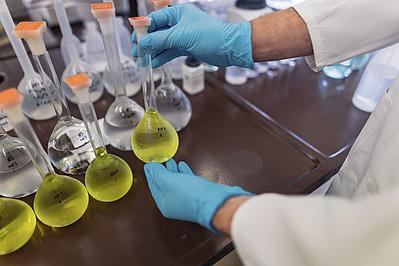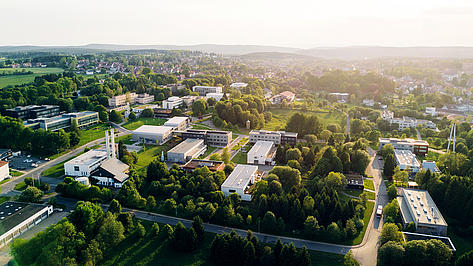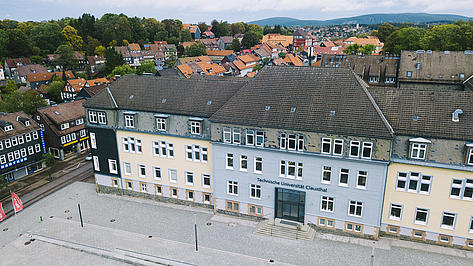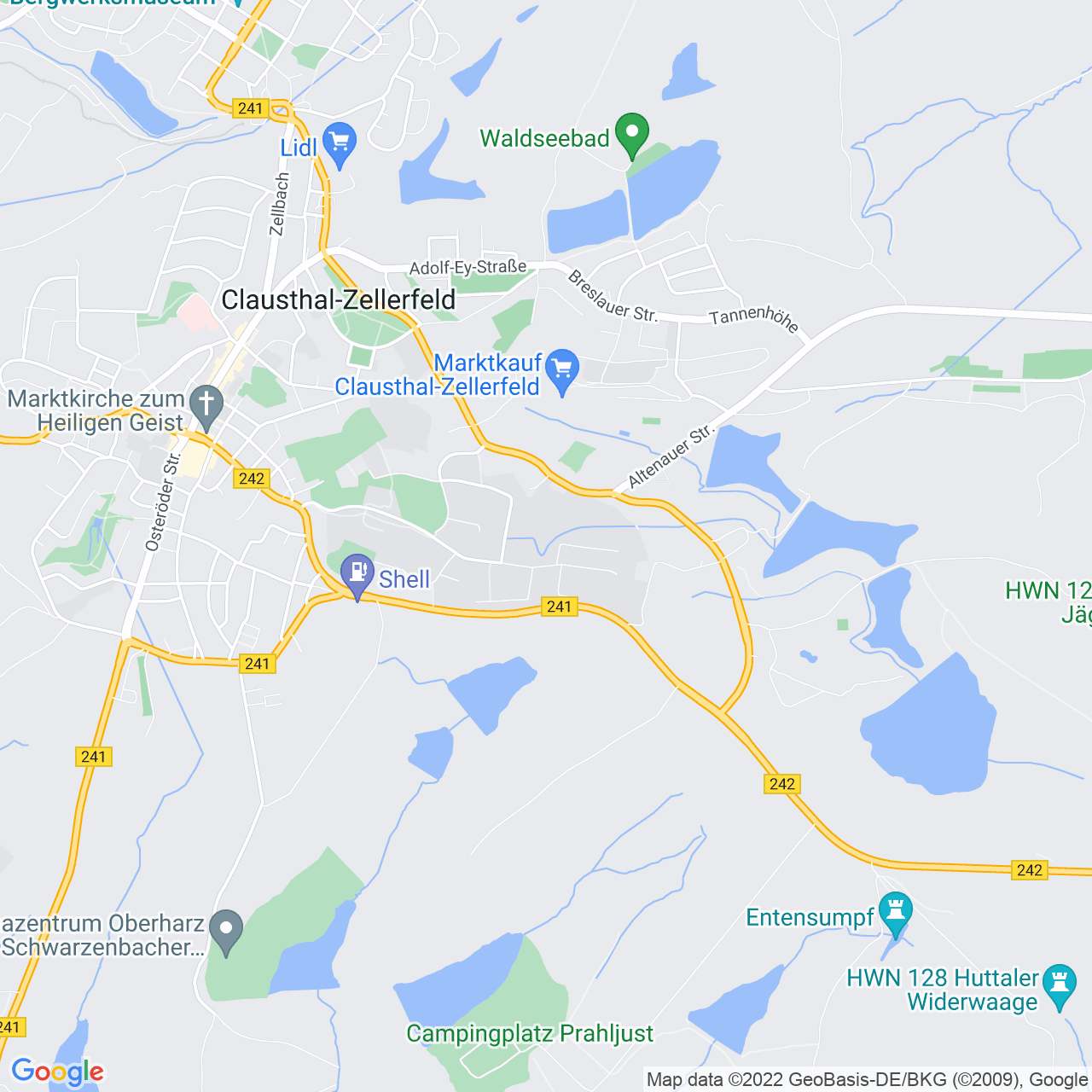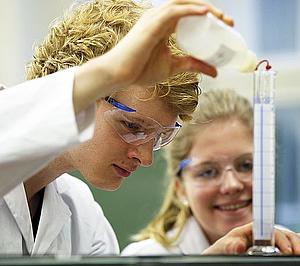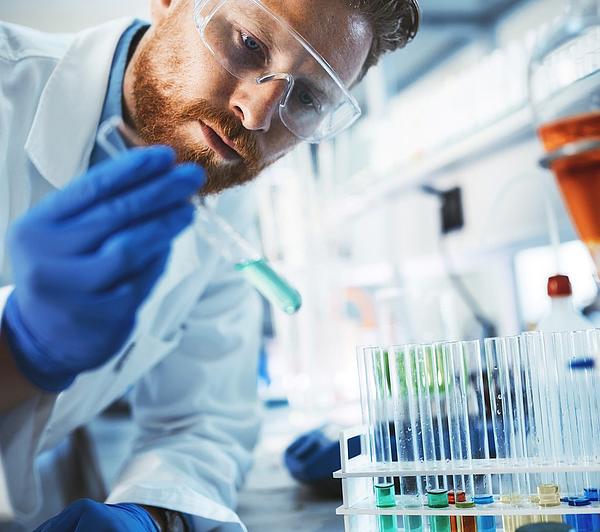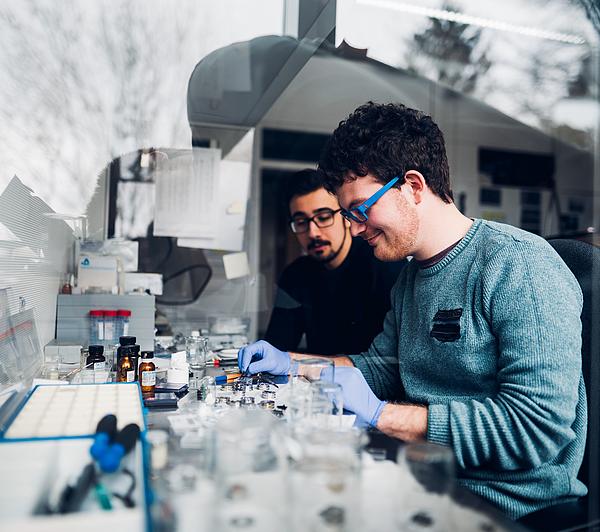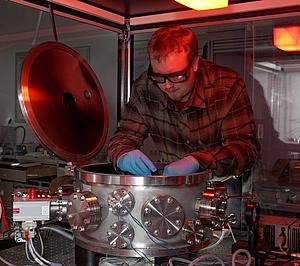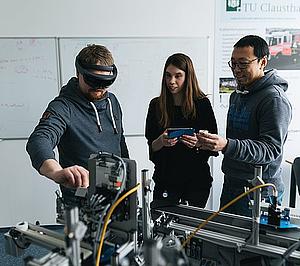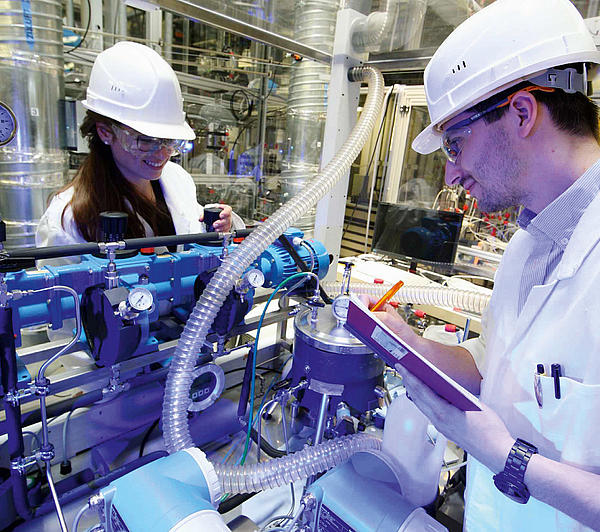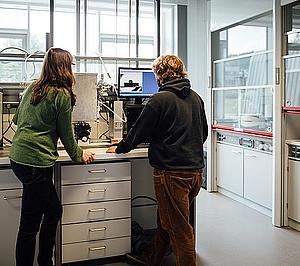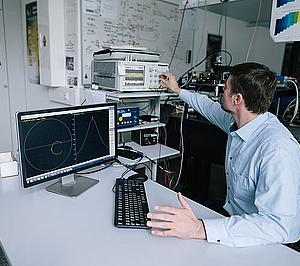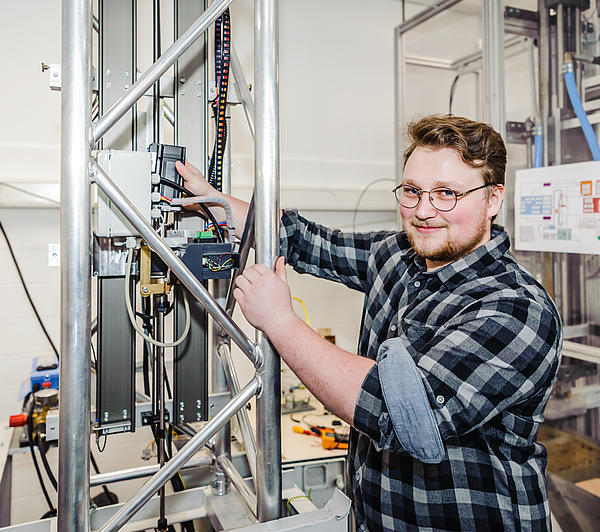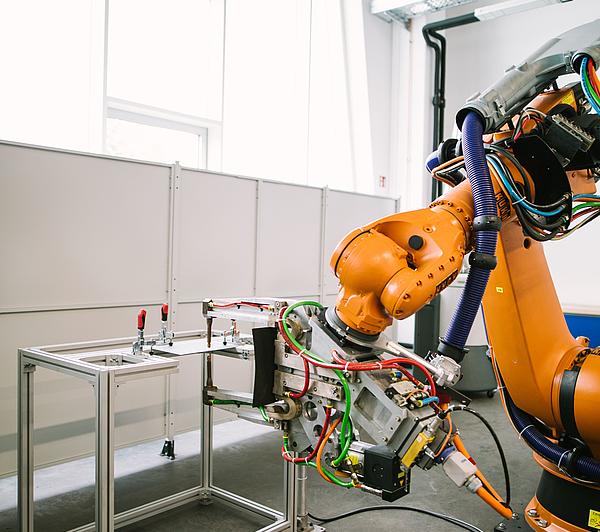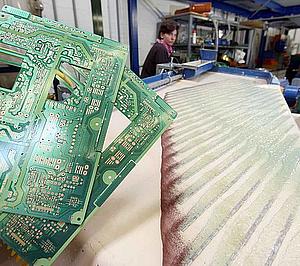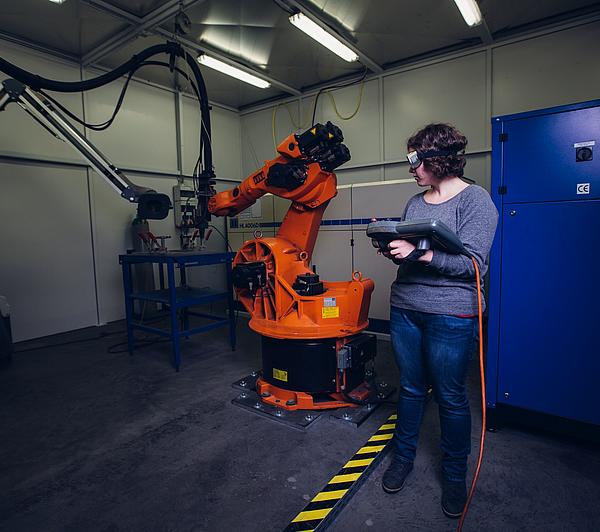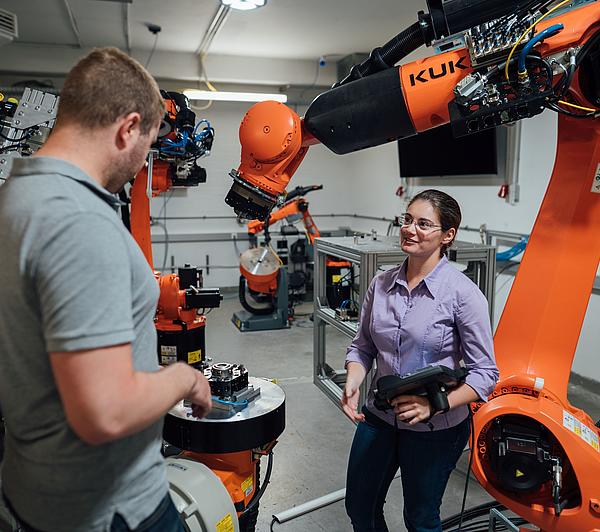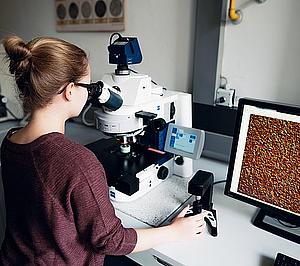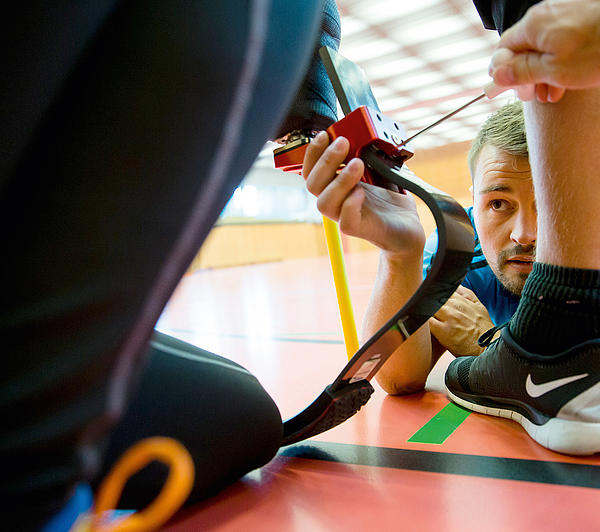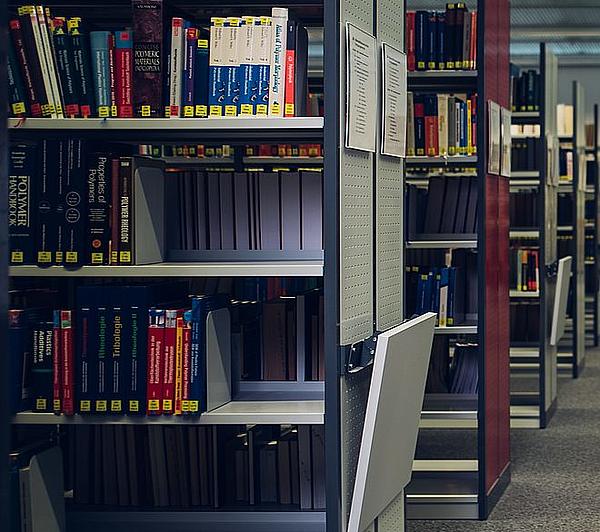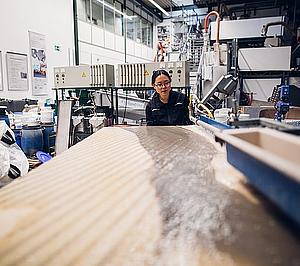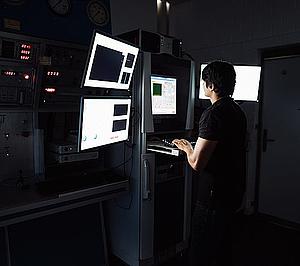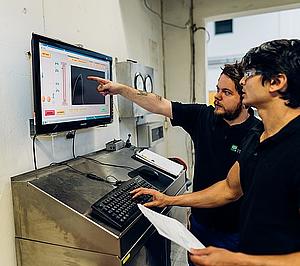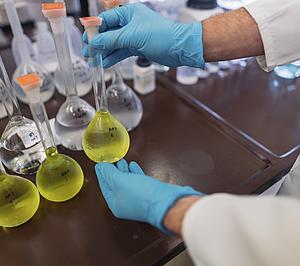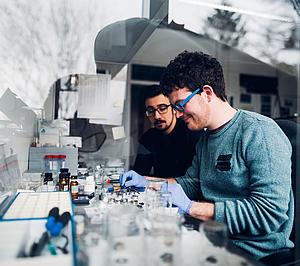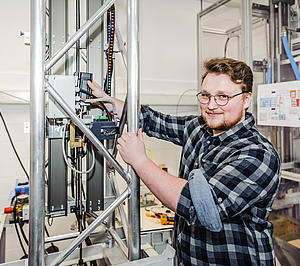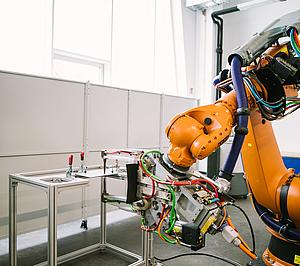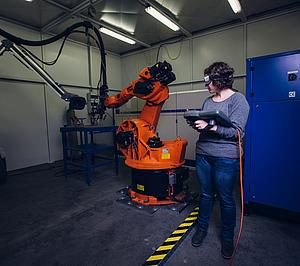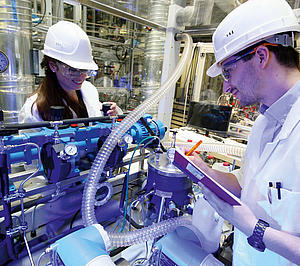A vital and cross-cutting science
If chemistry is to meet today's needs - to respond to the wishes, challenges and problems of an energy- and environment-conscious society - chemists need not only an understanding of their complex subject matter, but also the ability to develop new, creative and scientifically sound solutions and concepts. For this, they need the individual choice and freedom that the Master's program in Chemistry at TU Clausthal offers.
The program deals with the synthesis, detailed analysis and structure-property relationships of new organic and inorganic materials, as well as with new energy and recycling strategies and more environmentally friendly polymers.
Program outline
Type of program: Master
Duration: 4 Semester
Language of teaching: English
Degree: Master of Science (M.Sc.)
Start date: Admission to the winter semester, but also to the summer semester possible.
Accreditation: Urkunde ASIIN
Program structure
The chemistry master’s program at TU Clausthal is structured in three parts:
- Consolidation of chemical knowledge
- Development of core skills
- Hands-on scientific application of core skills
If they focus on applied chemistry, students can select an individual combination of courses in chemistry, environmental chemistry, materials science, and/or physics. If they choose instead to pursue polymer chemistry, modules on macromolecular chemistry, physical chemistry of polymers, and synthetics processing will give them a focus on synthetic chemicals.
Focus Applied Chemistry
- Compulsory modules in inorganic, analytical, organic, physical, and technical chemistry plus electrochemistry
- Two advanced modules chosen from the chemistry, environmental chemistry, materials science, and physics catalogues
- Two research projects related to the chosen modules
- One interdisciplinary team research project open to individual design
- One module from the catalogue on overarching themes of modern chemistry
- One experiment-based final project (six months)
Focus Polymer Chemistry
- Compulsory modules in inorganic, analytical, organic, physical, and technical chemistry plus electrochemistry
- Three advanced modules: Macromolecular chemistry, physical chemistry of polymers, Synthetics processing
- Two research projects related to the advanced modules
- One interdisciplinary team research project open to individual design
- One module from the catalogue on overarching themes of modern chemistry
- One experiment-based final project (six months)
Teilzeitstudium
German: Der Masterstudiengang Chemie kann auch in Teilzeit studiert werden. Näheres zu den Voraussetzungen, Ausgestaltung und Rechtsfolgen eines Teilzeitstudiums regelt die "Ordnung zur Regelung des Teilzeitstudiums (TzO)" der Technischen Universität Clausthal in der aktuell geltenden Fassung.
English: The Master's degree programme in Chemistry can also be studied part-time. Further details on the requirements, structure and legal consequences of part-time studies are regulated by the "Regulations on Part-time Studies (TzO) " of Clausthal University of Technology in the currently valid version.
Before applying for and taking up part-time studies, it is compulsory to have a counselling interview with the responsible part-time study coordinator. During this counselling interview, the part-time study coordinator agrees on an individual study plan (learning agreement) for the part-time study in consultation with the student.
Jobs and careers
Chemistry is a vital and cross-cutting science, relevant to multiple sectors of the economy and many parts of our lives. The broad spectrum of expertise provided by the master’s program at TU Clausthal gives our chemistry alumni excellent career prospects. Next to the chemistry industry itself, they find jobs in marketing, consulting, administration, and of course research and development. Recognized throughout Europe, the M.Sc. in chemistry also provides the ideal conditions for doctorate studies in chemistry, or indeed in materials science, process engineering, or the life sciences.
Possible fields
- Head of a laboratory in the chemical industry
- Production management
- Research and development
- Quality control and quality management
- Consulting
- Marketing
- Expert in an association or a public body
- Science editor
- Appraisal
Application
The master’s degree program in chemistry shall be aimed at applicants with a bachelor’s degree or equivalent qualification in
- chemistry
- chemical engineering
- business chemistry
- materials science and engineering
- energy and materials physics
- or a closely related subject.
The present provisions shall be supplementary to the General Master’s Entrance and Admission Regulations.


